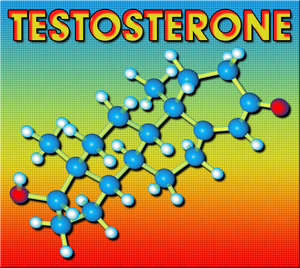Introduction to Sports Medicine in Athletics
Sports medicine has emerged as a pivotal field in enhancing the performance and health of athletes across various disciplines. For American male track and field athletes, the integration of sports medicine into their training and recovery regimens has proven to be transformative. This specialized branch of medicine focuses on the prevention, diagnosis, treatment, and rehabilitation of injuries related to sports and exercise. By leveraging the latest advancements in medical science, sports medicine professionals are able to tailor interventions that not only expedite recovery but also optimize athletic performance.
Enhancing Performance through Tailored Training Programs
One of the primary benefits of sports medicine for track and field athletes is the development of personalized training programs. These programs are designed based on comprehensive assessments of an athlete's physical condition, biomechanics, and performance metrics. Sports medicine specialists work closely with coaches and athletes to create training schedules that maximize efficiency and minimize the risk of injury. For instance, through the use of advanced technologies such as motion capture and force plate analysis, specialists can identify subtle biomechanical inefficiencies and address them through targeted exercises and drills. This approach not only enhances performance but also helps in preventing overuse injuries, which are common among track and field athletes.
Injury Prevention and Management
Injury prevention is a cornerstone of sports medicine, and for American male track and field athletes, this aspect is particularly crucial. The rigorous nature of track and field events places significant stress on the body, making athletes susceptible to a range of injuries, from muscle strains to stress fractures. Sports medicine professionals employ a variety of strategies to mitigate these risks, including prehabilitation exercises, proper warm-up and cool-down routines, and the use of protective gear. In the event of an injury, sports medicine offers advanced treatment options, such as platelet-rich plasma (PRP) therapy and extracorporeal shock wave therapy (ESWT), which can accelerate healing and reduce downtime. This proactive approach to injury management ensures that athletes can return to competition swiftly and safely.
Rehabilitation and Long-term Health
The rehabilitation phase following an injury is critical for athletes, and sports medicine plays a vital role in ensuring a full and effective recovery. Rehabilitation programs are meticulously designed to restore strength, flexibility, and function, often incorporating physical therapy, manual therapy, and therapeutic exercises. Sports medicine specialists monitor the progress of athletes closely, adjusting the rehabilitation plan as needed to ensure optimal outcomes. Beyond immediate recovery, sports medicine also focuses on the long-term health of athletes. By addressing underlying issues and promoting healthy lifestyle choices, sports medicine helps prevent chronic conditions that could impact an athlete's career and quality of life post-retirement.
Nutritional Guidance and Supplementation
Nutrition is another area where sports medicine significantly benefits track and field athletes. Proper nutrition is essential for fueling performance, aiding recovery, and maintaining overall health. Sports medicine professionals provide personalized nutritional guidance, helping athletes optimize their diet to meet the specific demands of their sport. This may include recommendations on macronutrient balance, hydration strategies, and the use of supplements to support performance and recovery. By ensuring that athletes are nutritionally well-equipped, sports medicine enhances their ability to perform at their best and recover more effectively from training and competition.
Conclusion: The Future of Sports Medicine in Track and Field
The integration of sports medicine into the training and recovery of American male track and field athletes has revolutionized the way these athletes approach their sport. By offering personalized training programs, effective injury prevention and management strategies, comprehensive rehabilitation, and tailored nutritional guidance, sports medicine has become an indispensable tool for enhancing performance and ensuring long-term health. As the field continues to evolve, the future looks promising for track and field athletes who can leverage these advancements to push the boundaries of what is possible in their sport.
Contact Us Today For A Free Consultation

- Preventing Ankle Injuries in American Male Volleyball Players: A Comprehensive Guide [Last Updated On: February 18th, 2025] [Originally Added On: February 18th, 2025]
- Sports Medicine: Essential for American Male Triathletes' Performance and Health [Last Updated On: March 16th, 2025] [Originally Added On: March 16th, 2025]
- Wrist Injuries in Snowboarding: Types, Mechanisms, and Prevention for American Males [Last Updated On: March 17th, 2025] [Originally Added On: March 17th, 2025]
- Sports Medicine Innovations Aid American Male Rowers with Lower Back Pain [Last Updated On: March 17th, 2025] [Originally Added On: March 17th, 2025]
- Sports Medicine's Role in Preventing Overuse Injuries Among American Male Climbers [Last Updated On: March 18th, 2025] [Originally Added On: March 18th, 2025]
- Optimizing Recovery for American Male Martial Artists: Nutrition, Techniques, and Mental Health [Last Updated On: March 18th, 2025] [Originally Added On: March 18th, 2025]
- Sports Medicine's Vital Role in Injury Management for American Male Figure Skaters [Last Updated On: March 18th, 2025] [Originally Added On: March 18th, 2025]
- Sports Medicine's Crucial Role in BMX Rider Recovery and Rehabilitation [Last Updated On: March 19th, 2025] [Originally Added On: March 19th, 2025]
- Hamstring Injuries in American Male Sprinters: Treatment, Rehabilitation, and Prevention Strategies [Last Updated On: March 21st, 2025] [Originally Added On: March 21st, 2025]
- Sports Medicine Enhances Performance and Health in American Male Water Polo Athletes [Last Updated On: March 21st, 2025] [Originally Added On: March 21st, 2025]
- Surfing Injuries in American Males: Prevention, Treatment, and Sports Medicine Advances [Last Updated On: March 21st, 2025] [Originally Added On: March 21st, 2025]
- Sports Medicine Innovations Aid American Male Cyclists with Hip Issues [Last Updated On: March 21st, 2025] [Originally Added On: March 21st, 2025]
- Knee Health Strategies for American Male Ultimate Frisbee Players [Last Updated On: March 21st, 2025] [Originally Added On: March 21st, 2025]
- Sports Medicine Enhances Performance and Health in American Male Polo Players [Last Updated On: March 22nd, 2025] [Originally Added On: March 22nd, 2025]
- Sports MedicineTransforms CrossFit: Enhancing Performance and Safety for American Male Athletes [Last Updated On: March 23rd, 2025] [Originally Added On: March 23rd, 2025]
- Rotator Cuff Injuries in American Male Swimmers: Diagnosis, Treatment, and Prevention [Last Updated On: March 23rd, 2025] [Originally Added On: March 23rd, 2025]
- Preventing Shoulder Injuries in Lacrosse Goalies: Innovative Sports Medicine Techniques [Last Updated On: March 23rd, 2025] [Originally Added On: March 23rd, 2025]
- Sports Medicine Enhances Performance and Longevity in American Male Fencers [Last Updated On: March 23rd, 2025] [Originally Added On: March 23rd, 2025]
- Sports Medicine's Role in Enhancing American Male Badminton Players' Careers [Last Updated On: March 23rd, 2025] [Originally Added On: March 23rd, 2025]
- Managing Tendonitis in American Male Tennis Players: Sports Medicine Approaches [Last Updated On: March 23rd, 2025] [Originally Added On: March 23rd, 2025]
- Sports Medicine's Vital Role in American Male Rugby Sevens Performance and Health [Last Updated On: March 23rd, 2025] [Originally Added On: March 23rd, 2025]
- Sports Medicine Advances Enhancing Baseball Pitchers' Career Longevity [Last Updated On: March 24th, 2025] [Originally Added On: March 24th, 2025]
- Ankle Health Strategies for American Male Beach Volleyball Players [Last Updated On: March 24th, 2025] [Originally Added On: March 24th, 2025]
- Sports Medicine's Role in Preventing Shin Splints in American Male Runners [Last Updated On: March 24th, 2025] [Originally Added On: March 24th, 2025]
- Sports Medicine Benefits for American Male Table Tennis Players: Performance and Health [Last Updated On: March 24th, 2025] [Originally Added On: March 24th, 2025]
- Ankle Health Strategies for American Male Basketball Point Guards: Prevention to Rehabilitation [Last Updated On: March 25th, 2025] [Originally Added On: March 25th, 2025]
- Preventing Hamstring Injuries in American Male Soccer Midfielders: A Comprehensive Approach [Last Updated On: March 25th, 2025] [Originally Added On: March 25th, 2025]
- Sports Medicine Revolutionizes Performance and Health for American Male Cyclists [Last Updated On: March 25th, 2025] [Originally Added On: March 25th, 2025]
- Sports Medicine Revolutionizes Training and Performance in American Male Handball [Last Updated On: March 25th, 2025] [Originally Added On: March 25th, 2025]
- Sports Medicine Advances Enhance Injury Management for American Male Field Hockey Players [Last Updated On: March 26th, 2025] [Originally Added On: March 26th, 2025]
- Preventing Stress Fractures in Male Runners: A Sports Medicine Approach [Last Updated On: March 26th, 2025] [Originally Added On: March 26th, 2025]
- Sports Medicine's Impact on Recovery Times in American Male Ice Hockey Players [Last Updated On: March 26th, 2025] [Originally Added On: March 26th, 2025]
- Sports Medicine: Essential for American Male Rugby Forwards' Health and Performance [Last Updated On: March 26th, 2025] [Originally Added On: March 26th, 2025]
- Preventing Back Injuries in American Male Rowers: A Sports Medicine Approach [Last Updated On: March 26th, 2025] [Originally Added On: March 26th, 2025]
- Sports Medicine Strategies for Recovery in American Football Wide Receivers [Last Updated On: March 26th, 2025] [Originally Added On: March 26th, 2025]
- Sports Medicine Advances Extend Careers of American Baseball Outfielders [Last Updated On: March 26th, 2025] [Originally Added On: March 26th, 2025]
- Optimal Recovery Strategies for American Male Soccer Forwards: A Comprehensive Guide [Last Updated On: March 26th, 2025] [Originally Added On: March 26th, 2025]
- Optimizing Recovery for American Male Soccer Goalkeepers: A Holistic Sports Medicine Approach [Last Updated On: March 27th, 2025] [Originally Added On: March 27th, 2025]
- Lacrosse Midfielders' Hip Injuries: Sports Medicine Advances and Rehabilitation Strategies [Last Updated On: March 27th, 2025] [Originally Added On: March 27th, 2025]
- Sports Medicine's Vital Role in Soccer Defenders' Recovery and Performance [Last Updated On: March 27th, 2025] [Originally Added On: March 27th, 2025]
- Sports Medicine Enhances Safety and Performance in American Male Trampoline Gymnastics [Last Updated On: March 27th, 2025] [Originally Added On: March 27th, 2025]
- Optimizing Muscle Health for American Male Speed Skaters: A Comprehensive Guide [Last Updated On: March 27th, 2025] [Originally Added On: March 27th, 2025]
- Cross-Country Skiing: Knee Health Strategies for American Male Athletes [Last Updated On: March 27th, 2025] [Originally Added On: March 27th, 2025]
- Lacrosse Shoulder Injuries: Sports Medicine's Role in Prevention and Treatment for Attackmen [Last Updated On: March 27th, 2025] [Originally Added On: March 27th, 2025]
- Managing Groin Injuries in American Male Hockey Players: Diagnosis, Treatment, and Prevention [Last Updated On: March 28th, 2025] [Originally Added On: March 28th, 2025]
- Sports Medicine's Role in Enhancing Volleyball Performance and Health for American Males [Last Updated On: March 28th, 2025] [Originally Added On: March 28th, 2025]
- Sports Medicine Benefits for American Male Track and Field Athletes: Performance and Recovery [Last Updated On: March 28th, 2025] [Originally Added On: March 28th, 2025]
- Sports Medicine's Vital Role in Managing Injuries of American Male Swimmers [Last Updated On: March 28th, 2025] [Originally Added On: March 28th, 2025]
- Knee Health Essentials for American Football Running Backs: Prevention and Recovery Strategies [Last Updated On: March 29th, 2025] [Originally Added On: March 29th, 2025]
- Sports Medicine's Impact on Basketball Forwards: Performance, Health, and Career Longevity [Last Updated On: March 29th, 2025] [Originally Added On: March 29th, 2025]
- Sports Medicine Enhances Performance and Health in American Male Cycling [Last Updated On: March 29th, 2025] [Originally Added On: March 29th, 2025]
- Preventing Achilles Tendon Injuries in American Male Runners: A Sports Medicine Approach [Last Updated On: March 30th, 2025] [Originally Added On: March 30th, 2025]
- Sports Medicine's Vital Role in Enhancing American Male Swimmers' Performance and Health [Last Updated On: April 1st, 2025] [Originally Added On: April 1st, 2025]
- Sports Medicine's Role in Enhancing American Male Volleyball Players' Performance and Career Longevity [Last Updated On: April 1st, 2025] [Originally Added On: April 1st, 2025]
- Knee Health Strategies for American Male Cross-Country Skiers [Last Updated On: April 5th, 2025] [Originally Added On: April 5th, 2025]
- Sports Medicine Benefits for American Male Track and Field Athletes: Performance and Longevity [Last Updated On: April 5th, 2025] [Originally Added On: April 5th, 2025]
- Preventing Hamstring Injuries in American Male Soccer Midfielders: A Sports Medicine Approach [Last Updated On: April 5th, 2025] [Originally Added On: April 5th, 2025]
- Groin Injuries in Hockey: Diagnosis, Treatment, and Prevention Strategies [Last Updated On: April 6th, 2025] [Originally Added On: April 6th, 2025]
- Sports Medicine: Enhancing Performance and Health in Basketball Forwards [Last Updated On: April 6th, 2025] [Originally Added On: April 6th, 2025]
- Lacrosse Midfielders' Hip Injuries: Prevention, Treatment, and Performance Enhancement [Last Updated On: April 8th, 2025] [Originally Added On: April 8th, 2025]
- Sports Medicine's Vital Role in Enhancing Rugby Forwards' Health and Performance [Last Updated On: April 9th, 2025] [Originally Added On: April 9th, 2025]
- Sports Medicine's Vital Role in Enhancing Male Swimmers' Health and Performance [Last Updated On: April 9th, 2025] [Originally Added On: April 9th, 2025]
- Sports Medicine's Role in Enhancing Baseball Outfielders' Career Longevity [Last Updated On: April 10th, 2025] [Originally Added On: April 10th, 2025]
- Optimizing Recovery for American Male Soccer Forwards: A Holistic Approach [Last Updated On: April 10th, 2025] [Originally Added On: April 10th, 2025]
- Knee Health Strategies for American Football Running Backs: Prevention, Rehabilitation, and Technology [Last Updated On: April 10th, 2025] [Originally Added On: April 10th, 2025]
- Sports Medicine's Role in Preventing Achilles Tendon Injuries in American Male Runners [Last Updated On: April 11th, 2025] [Originally Added On: April 11th, 2025]
- Sports Medicine Revolutionizes Performance and Health for American Male Cyclists [Last Updated On: April 13th, 2025] [Originally Added On: April 13th, 2025]
Word Count: 634





















